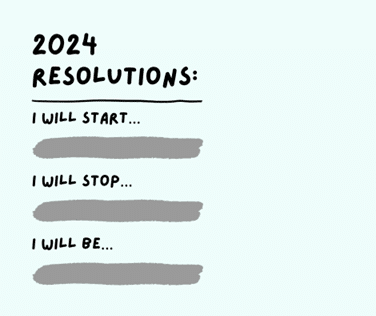As the Director of Behavioral Health here at Lyric Health, I’d like to address in this month’s virtual care blog the topic of the New Year’s Resolutions tradition, which has become the perfect life reset, providing the out with the old, in with a new mindset. For many, that means eliminating old, unhealthy, or unproductive habits and initiating new and healthy behaviors with a new attitude and purpose.
However, some statistics show of the 50 percent of adults in the United States who make New Year’s resolutions, even with the best of intentions, fewer than 10 percent keep them for more than a few months. That is unfortunate since the most popular New Year’s resolutions are healthy and worthy endeavors, including losing weight, eating healthier, drinking less, and smoking cessation. For many adding good mental health habits to the list is just as important as physical health.

So, how can such good intentions go so wrong?
Well, I have found with my patients that the biggest culprits are setting resolutions that are too lofty and unrealistic, and usually too numerous. Also, when making resolutions on a whim or without preparation, they fail and want to quit.
There are, however, some simple, tried, and true strategies that can keep you on track for your chosen New Year’s resolutions:
- First and foremost, limit the number of resolutions from several to one or even two. That will help you stay focused, committed, and not dilute energy or effort.

- Once you choose your goal(s), do the research! You should consult with your health provider if it is a lifestyle change. Preparation, in general, will provide you with the best strategies for success and keep you realistic in the desired change. For example, instead of quitting smoking abruptly, you may want to use a patch or medication. Instead of setting a goal of losing 30 lbs. in 3 weeks, it may be more prudent and achievable over a longer and more realistic period of time. Again, your provider can help with these decisions.

- It is also essential to build incentives and rewards to stay on track. For example, if the goal is to increase your exercise schedule, you can reward yourself with wearable exercise gear or a healthy meal at your favorite restaurant after the first few weeks.
- Getting an exercise buddy or companion with the same goal is an excellent way to support and be a cheerleader for one another. It’s no longer you against the world.
Finally, keep in mind that it is rare to be perfect in pursuing any goal or resolution. There will be stops and starts and falling off the wagon. If that happens to you, give yourself grace, pick yourself up, dust yourself off, and keep moving forward. After all, you are only human!


